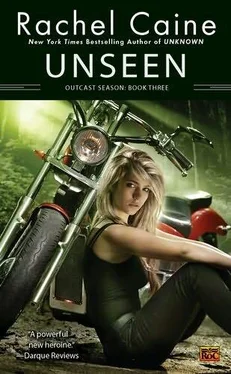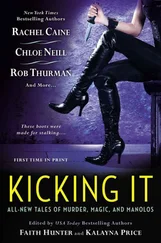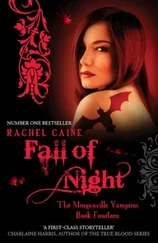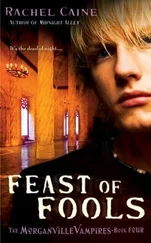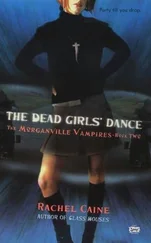“Area 51?” When I didn’t react, his eyes widened. “Come on, seriously? You never heard of Area 51? Dreamland?” When I shook my head, he sighed. “Got to get you a pop culture makeover one of these days. Boiling it down, this means the spooks all of a sudden like us enough to throw open the borders to one of their most secure facilities. Wardens have never been welcomed there before; maybe they’re letting us in because they don’t like all this weird Church business a whole lot more. They’ve had some bad experiences dealing with those kinds of cults.”
His moment’s fascination with the map faded, and he walked away, clearly thinking.
“What?” I asked him. I couldn’t follow what logical—or illogical—leaps he was making, but I could sense the changes in his mood quickly enough, and it had darkened considerably.
“Area 51’s a hell of a secure spot,” he said. “But I really can’t see the government letting the Wardens set up shop in there. If they’re letting us in at all, they’ve got some kind of ulterior motive about it.”
“Like what?” I asked. He turned and looked at me for a long second, then shook his head.
“Could be Ibby,” he said. “Could be they want all these kids for themselves. Could be they want you, Cass.”
“Me,” I repeated, surprised. “Why?”
“Because the feds have never had an actual Djinn, they never could even come close to grabbing one. You, you’re vulnerable, and you’re the next best thing—you can spill all the weaknesses, and give them an idea of Djinn strength, too. I don’t like it, and no way am I going to risk Ibby, either.”
I had never thought of myself as vulnerable, and the idea surprised me far more than I’d expected. “I could fight them,” I said.
“Yeah, sure you could. But this is something you don’t understand about humanity, querida —you can kill one, or five, or ten, but they keep on coming. I guarantee you, in Area 51, if they want you, they’ve got you.”
Unsettling. “Then what do you want to do?” I asked.
He locked the door behind Cardenas. “I want to find out what the hell Marion thinks she’s doing, because I’m not taking Ibby—or you—blindly out into the field of fire. Not ever again.”
It took two hours to get a return call from Marion Bearheart. When it finally came, Ibby was eating cereal in the kitchen with us, and Luis gestured for me to finish pouring her orange juice and follow him into the other room. Ibby watched us go, too much awareness and calculation in her face, and I wondered just how much we could really keep from her. I leaned over to stroke her silky hair back from her face. “Just a moment,” I promised her. “You’ll drink your juice?”
That got a well-remembered, brilliant smile from her. “I know, juice is good for me,” Ibby said, which wasn’t the same thing.
“Promise me.”
“I promise,” she sighed, and reached for the glass to down a mighty mouthful, to prove her point. I kissed her forehead and followed Luis.
He was pacing, with the cordless phone held to his ear. I knew that particular style of restlessness in him; it meant he was deeply worried, and very angry on some level he was determined not to convey. His knuckles, however, were pale where he gripped the receiver. “Yeah,” he was saying. “Yeah, I know the kid needs help, Marion; that’s not what I—” He paused, clearly interrupted, and his dark eyes met mine briefly before the pacing carried him onward. “Ibby lost her mother and father; that’s enough trauma for any kid her age. Then those nutcases triggered her powers too early. They filled her head full of lies about the Wardens; they told her I was dead—showed her I was dead. They showed her how Cassiel killed me. And now you want to put her in some kind of camp —No, shut up and let me finish. I don’t care if you call it a ranch or a camp or a hospital or a school; it’s nothing but more of the same. She’s had enough terror and brainwashing for a lifetime, Marion. She needs a home, and I’m not sending her anywhere like that!”
Marion was patient—and kind—enough to allow him to finish his rant without interruption. Then she responded, something quiet and brief, and Luis hung up the phone. He stood there, head down, shoulder-length hair—now more than a bit ragged, from the fire we’d faced—hiding his expression, and then turned and walked away from me without saying a word.
I followed him into the kitchen. He poured coffee and sipped it, watching Isabel eat her cereal with narrowed eyes. She glanced up at him with a smile, and he smiled back. It looked almost natural.
“Ibby,” he said, “how would you feel about going away to school?”
She didn’t answer immediately. She looked up at him, no particular expression on her sweet-featured face—perfectly composed. There was an unsettling amount of calculation in the level stare she gave him, and then Ibby said, “I don’t like schools anymore.”
“I know, mija , but this is a good school, one that will help you.” He sank down at the table next to her and took her small hand in his large one. “You don’t say it, but you’re scared, aren’t you? And hurting. You still miss your mami and papi —I know you do.”
That broke through the crystal shell of her artificial calm, and she looked away and said, in a small voice, “All the time.”
“Yeah, me, too,” Luis said, and kissed the top of her head with such gentleness it made my heart ache. “I hate it that they’re gone and they can’t be here to tell you how brave you’ve been, and how strong you are. But being strong isn’t everything. It doesn’t make you happy, does it?”
He’d struck a nerve, one that I didn’t even understand. Why wouldn’t strength make one happy? Would weakness? No matter which direction I turned the question, it remained unanswerable for me. A quintessentially human thing, I supposed.
Ibby’s dark eyes had filled with tears. “No,” she said, in an even smaller, more fragile voice. “Being strong makes me sad, too. I don’t want to hurt people. Even the bad people. I just want people to leave me alone.”
That, too, I failed to grasp. Among Djinn, things were much more straightforward. One had allies, friends, adversaries, and enemies. Behavior of others dictated responses, measure for measure. I couldn’t imagine having an ethical stand that would somehow keep me from striking out at those who wanted to hurt me. There could be no justice unless someone was willing to wield the sword.
But I saw in Ibby something else ... something that I was almost certain was placed there by her mother, Angela. I did not doubt that Angela would defend her child to the death, but Angela was one who forgave others. She had tried to find the good in people even when it was vanishingly small, or absent altogether.
She had passed that noble desire on to her daughter, and now it was a slender, precious thread holding Isabel away from the pit into which our enemies had tried to plunge her. They’d sought to use her as a weapon, but Ibby wasn’t anyone’s tool.
I sank down into the chair across from Ibby and Luis, watching the two of them together. There was a sweetness to it that held a strength of its own.
I didn’t know why, but I reached out to Isabel as well, and took her left hand in both of mine.
“Your uncle and I will fight the bad people for you,” I said. “They’ll never hurt you again. I promise you that.”
Djinn didn’t promise lightly; we were bound by oaths, when we swore them in the old, formal ways. An oath sworn by a Djinn had once bound our entire race, and put us at the doubtful mercies of humanity. My promise was well meant, but it would require dangerous commitment to keep.
Читать дальше
